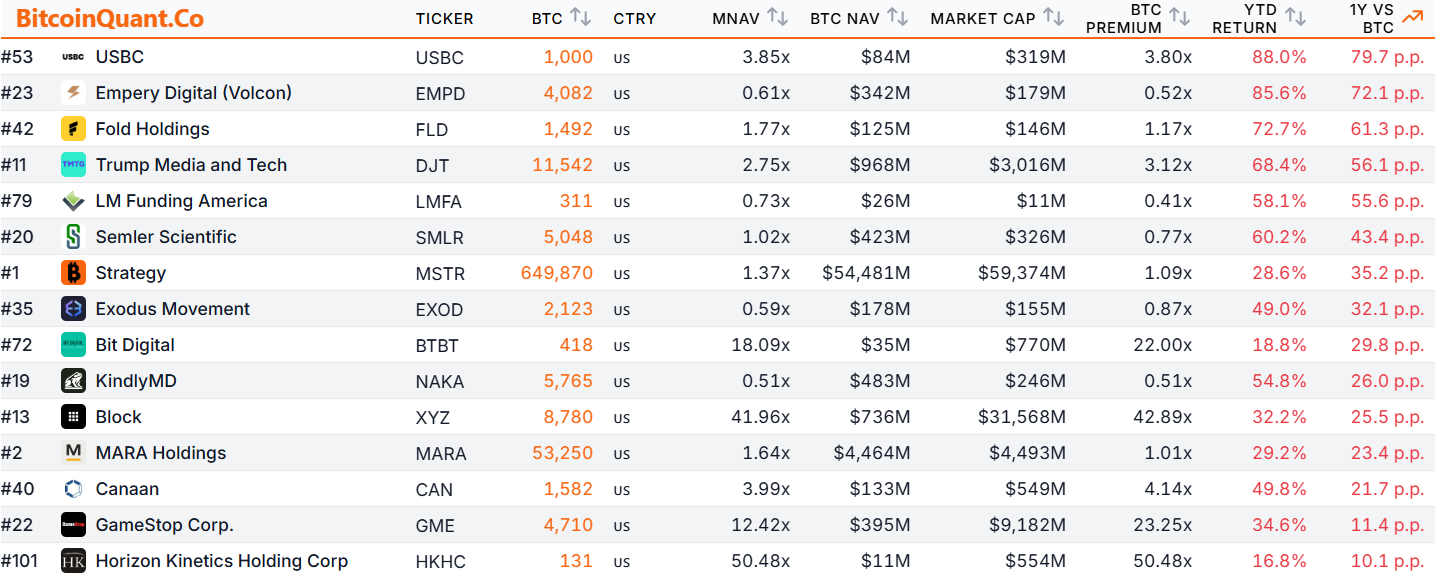Earlier this year, there was growing frustration at Bitcoin Asia in Hong Kong over digital asset treasury (DAT) companies and their lagging performance compared to the assets filling their coffers.

“Just buy ETFs,” Matt Cole, CEO of Strive Asset Management, said during a conference panel discussion.
However, this is not the case in Japan. In fact, Tokyo-listed DAT consistently outperforms Bitcoin due to its local tax treatment of stocks and cryptocurrencies.
These premiums are not random. These are expressions of Japan’s tax incentives, which punish direct gains in cryptocurrencies but reward equity gains with low interest rates and loss offsets.

In Japan, profits from crypto assets are treated as miscellaneous income, treated along with salaries and other income, and are taxed at progressive rates that reach 55% at the highest income levels.
These profits cannot be offset or carried forward with losses from other causes. Stock profits belong to a completely different category. They are taxed separately at around 20%, allow loss carry forwards and have much simpler reporting requirements. This difference creates a clear financial incentive. Holding Bitcoin puts you at risk of paying high taxes directly, but owning stocks linked to Bitcoin keeps your gains within the range of lower-tax stocks.
Investors who want to get their hands on Bitcoin free of the 55% tax have little choice but to bid up shares in the companies that hold it. American companies operate in a neutral tax environment, so their stocks rarely trade for significantly more than their BTC holdings.
At the same time, the Tokyo Stock Exchange and Japan Exchange Group are growing concerned about the heightened volatility caused by their own tax systems, CoinDesk previously reported.They have begun warning companies about backdoor listing strategies, stepped up audits, and signaled that the DAT model could expose retail investors to risks they do not fully understand.
Similar discussions are occurring elsewhere in Asia, with regulators in Hong Kong, India and Australia reportedly concerned about the structure and discouraging listed companies from pursuing this strategy.
Back in Japan, DAT may soon be losing its luster as the country’s tax authorities consider changing the tax treatment of cryptocurrencies.
If that happens, without a tax advantage, Tokyo-listed DATs will quickly lose their luster. The advice “just buy ETFs” may be valid in Japan as well.


